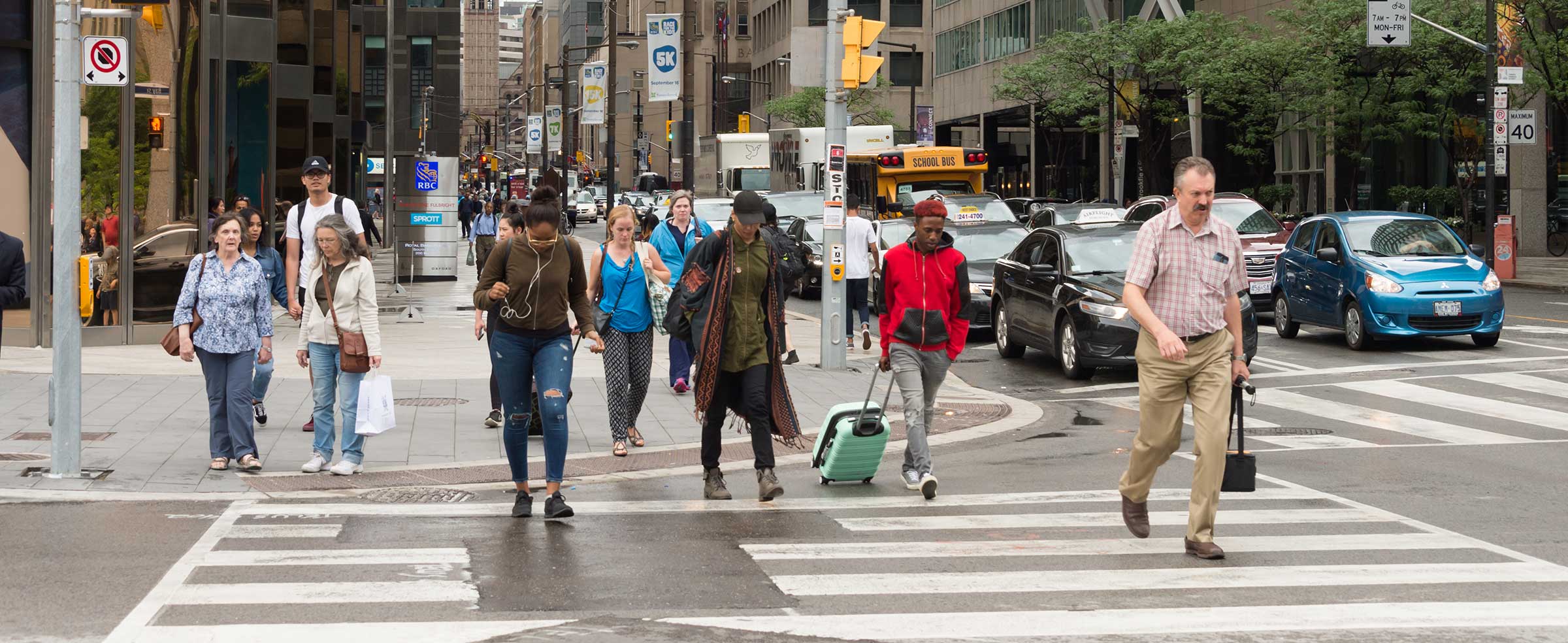Coronavirus will not dent the trust Canadians have in each other

The following op-ed was published in the March 18,2020 edition of The Globe and Mail.
In just a few days, we went from wondering how COVID-19 would affect us to finding ourselves in the midst of a national emergency. Many expect major disruptions to expose the weak patches in our civic fabric, and there have been, and will continue to be, actions and episodes that have disappointed and shocked. Some people have hoarded and even resold supplies for a quick profit; some have refused to follow public-health directives; some have tried to collect payments from those thrown out of work.
Many Canadians have no doubt also seen a cascade of headlines in recent years announcing the decline of trust in Western societies. We have been told that "2019 had the ‘highest level of democratic discontent’ since detailed global recording began in 1995,” that the quality of democracy is declining while “growing political polarization has made the day-to-day work of governance … more difficult,” and that a “majority worldwide say their society is broken,” to cite just a few examples.
Compounded together as this pandemic accelerates, these concerns have left Canadians wondering whether we have the cultural and institutional resilience to respond effectively. Do we trust each other, our institutions and our leadership to work together to defeat this virus?
Leaving aside the question of whether these reports accurately capture trends unfolding elsewhere, it would be a mistake to assume that they are reliable guides to trends in Canada. Our surveys have found that we remain one of the most trusting societies in the world when it comes to our institutions and values – and so most Canadians will surely react to this crisis exactly as good neighbours, co-workers and citizens should.
Support for Canada’s democracy is high and has been slowly rising over the past decade, from 70 per cent in 2010 to 76 per cent in 2019. Satisfaction with public services such as health care also currently sits at 75 per cent, which is higher than the OECD average.
The country has become less, not more, polarized; opinions among those on the left and right of the political spectrum (79 and 78 per cent, respectively) have been converging in their satisfaction with our democracy.
Xenophobia and anti-immigration sentiment has weakened, as suggested by our October, 2019, survey that found that 50 per cent of Canadians felt that “too many immigrants do not adopt Canadian values,” the lowest proportion expressing this view since Environics began asking the question in 1993 (when 72 per cent voiced such concerns).
And even in the midst of heated disputes on energy and climate policies and other issues, two-thirds of Canadians told us that they have a great deal or some confidence in our ability to resolve our internal differences, reflecting a majority view in all 13 provinces and territories.
If attitudes to our political system seem a bit abstract, consider these more concrete findings from a study of social capital that we conducted in Toronto in 2018. At that time, most residents of Canada’s biggest city agreed that people in their neighbourhood can be trusted and that people in their community are willing to help their neighbours. Nine in 10 said people working together as a group could make a difference in solving problems in their community. And most expressed high levels of trust, not only in members of their own family, but also in the people they work or go to school with.
Perhaps most remarkably, comparison with earlier research shows no erosion in these measures of social capital over the past decade, even after the arrival of more than one million newcomers from around the world. They have quickly become our trusted neighbours, too.
Having a trusting society does not mean having an uncritical one, either. Where once we nearly automatically deferred to political, business and religious elites, Canadians now greet election promises and corporate advertising with a healthy dose of skepticism. This is not a sign that society is broken – rather, it shows that it has matured.
To suggest that trust is declining in Canada not only ignores the available research
Of course, trust alone cannot protect us from COVID-19. Nevertheless, it is worth acknowledging that we have a reservoir of trust to draw on as we navigate these unprecedented circumstances together. The wait for a vaccine may be long, but an extra dose of hope, courtesy of our fellow Canadians, will not hurt.
Like what you're reading? With our bi-monthly e-newsletter, you can receive even more with the latest details on current projects, news, and events at the institute.
Subscribe